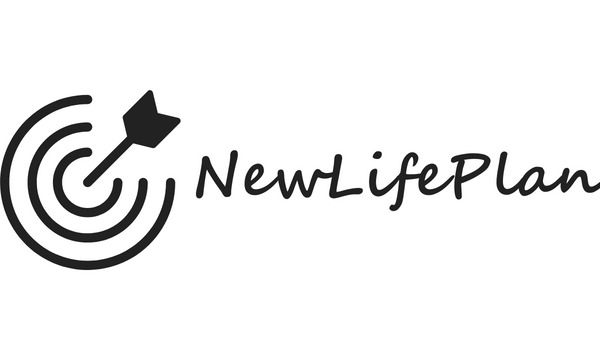From which perspective do you see the world?
How do you react to things that happen in life?
Do you struggle persuading the people around you?
Have you ever asked yourself these questions? For many of us, the answer is ‘no.’
Until I took an NLP training, these questions never even crossed my mind.
However, these questions are crucial both for understanding ourselves and for developing persuasion skills.
So, how can we answer these questions clearly? The answer is one word: ‘Metaprograms.’
Metaprograms are the patterns that every human being has for perceiving the world.
And they are also one of the most useful tools for understanding people and achieving personal transformation.
In my article ‘Learn Patterns, Always Stay Ahead‘ I talked about the importance of understanding patterns.
Learning and applying the patterns used by those who have already achieved what you aim for can help you succeed.
Or you can create and use specific patterns to develop a new habit.
However, not everything may be as easy as it seems.
If the way you perceive life is holding you back, even if you recognize patterns, applying them might still be challenging for you.
That’s why you first need to be aware of your metaprogram and change it if necessary.
Some people can’t make any decisions without knowing all the details. They want to have the most detailed data.
On the other hand, some prefer to see the big picture first. If they like the big picture, they then look at the details.
Some people are only influenced by ideas. A good idea can attract them immediately. However, if they hear a better idea, they quickly forget the previous one.
Others just want to focus on a task and finish it. They cannot relax until it is done.
Some people make decisions based purely on their emotions. They want to do whatever makes them feel good.
You have also seen people who just want to get away. Away from noise, away from arguments, away from work, away from responsibility.
Or perhaps you know people who try to be part of every environment and try to stay in touch.
You also likely know people who recognize similarities between others and easily build positive communication.
Or people who only focus on differences and constantly seek out what sets things apart.
Even some people only talk about the food they ate. You might think they live to eat. They evaluate everything in terms of food.
These metaprograms are the patterns people develop to perceive life.
Even the personality traits I mentioned in my article ‘Your Personality Tree – Discover The Real You’ can affect metaprograms.
For example, someone with dominant ‘Peaceful Phlegmatic’ personality traits might have a metaprogram focused on distancing. As they don’t enjoy conflict or excessive responsibility.
On the other hand, someone with a ‘Popular Sanguine’ personality type is very likely to be focused on meeting new people. Because they are always looking for someone new to share their stories with.
According to NLP (Neuro-Linguistic Programming), there are 7 top metaprograms:
1- Away or Toward: Some people strive to move away from pain. While others are motivated solely by the pursuit of pleasure. Understanding this metaprogram helps you determine how people can be motivated.
2- External or Internal Frame of Reference: Some people consider themselves successful only when they receive external validation. While others need only self-evaluation. If you want to influence people in communication, understanding their frame of reference will be useful.
3- Sorting by Self or Others: Do you prioritize your own interests first in interactions, or do you focus on what you can do for others? Of course you won’t always be at one extreme, but can generally identify what drives your responses and interactions—and whether this helps or hinders you.
4- Matcher or Mismatcher: What type of people do you enjoy communicating with the most? Those who agree with you and focus on similarities, or those who challenge you with different perspectives? Understanding this metaprogram will help you to build rapport in communication.
5- Proactive or Reactive: Proactive individuals take initiative, plan for challenges, and take action. Reactive individuals, remain passive and only respond to challenges when they arise. Understanding this metaprogram will help you move from reactive to proactive mindset.
6- Possibility or Necessity: Are you always looking for new possibilities, or do you only do things out of necessity? Those with a necessity-driven mindset focus only on required procedures and obligations. While possibility-driven individuals constantly seek new opportunities and alternatives. Become a student of possibilities.
7- Independent, Cooperative, or Proximity Work Styles: Have you ever observed your colleagues’ work styles? Some prefer to work independently, while others thrive in teamwork. Some take full responsibility for tasks but still prefer working within a team. Understanding this metaprogram can help you determine the most efficient working style for yourself and your team.

Understanding these metaprograms will generally enhance your communication skills.
Of course, metaprograms are not limited to these.
By analyzing how people talk and react in conversations, you can identify a variety of metaprograms in different individuals.
Recognizing the metaprograms of those around you allows you to communicate more effectively and persuade them more easily.
For example, my wife loves discovering new places and traveling. Most of our conversations are about the places we are going to visit.
That’s why saying, “If we do this, we can plan our trips more easily,” is usually enough to persuade her.
Or my son loves eating out. Talking about how delicious the food will be is enough to convince him.
I realized that my own metaprogram, no matter how much I love to travel and have fun, is focused on distancing.
This often led me to hold back and feel bad about myself.
Luckily, I know that metaprograms can be changed.
So, I chose to perceive the world as a place where I can have fun.
Of course, we all go through difficult and challenging times.
But I prefer to prioritize spending quality time with my loved ones.
Become Aware of Your Metaprogram:
Does your way of perceiving life—your metaprogram—push you forward or hold you back from what you want?
Start by becoming aware of your own metaprogram.
If it’s holding you back, don’t insist on it —change it.
Most metaprograms are patterns we unconsciously form based on our childhood experiences.
But once we become aware of them, they are easy to change.
Metaprograms tell your brain what to focus on. Everything else you erase or generalize.
After all, your conscious mind can only focus on a limited number of things at a time.
If you are only focused on food, one bad meal can ruin all the good time you have.
Or if you tend to avoid, you won’t even see opportunities coming your way.
So become aware of the things you normally delete and start focusing on them.
If you tend to avoid things, think about what truly excites you.
Is it spending time with your family?
Writing a blog post?
Researching things you are curious about?
Exploring new places?
You probably don’t want to avoid everything.
Find a field that genuinely interests you and take a bold step toward it.
Don’t let your limiting metaprograms define you.
Analyze Metaprograms of Those Around You:
Pay attention to the metaprograms of those you communicate with.
What do they talk about the most? How do they react?
Do they love sharing their successes and receiving praise?
Are they focused on meeting new people?
Do they feel uncomfortable until they finish a task they’ve started?
Do they have similar metaprograms to you?
How do they react when you communicate with them in alignment with their metaprograms?
When you adapt to their metaprograms, you can establish strong connections and influence conversations.
Analyze, recognize, adapt, and influence.
You’ll be surprised at how much your persuasion skills improve.
Be full of energy! Believe in yourself! Live with passion!
Take care of yourself!



Leave A Reply